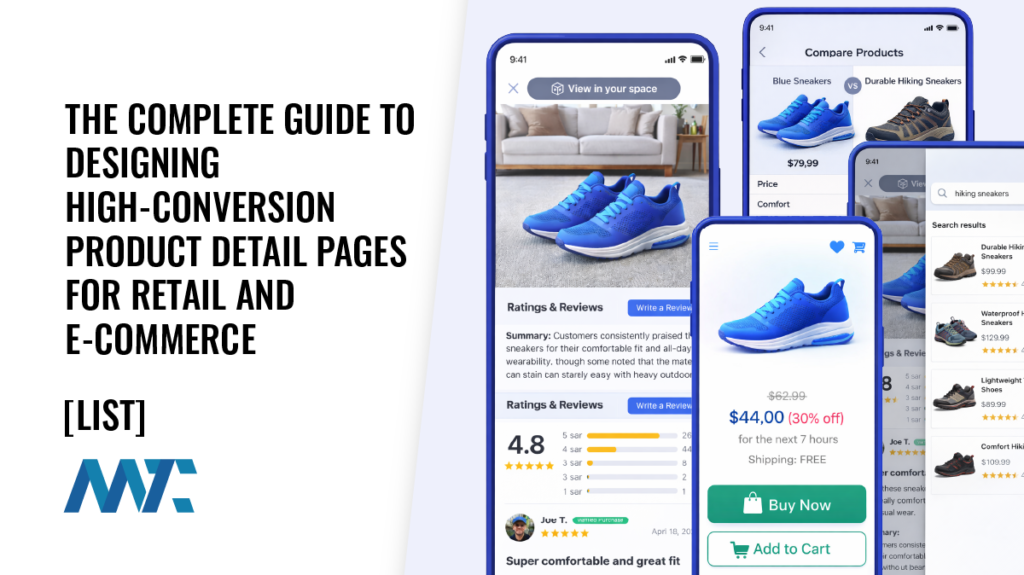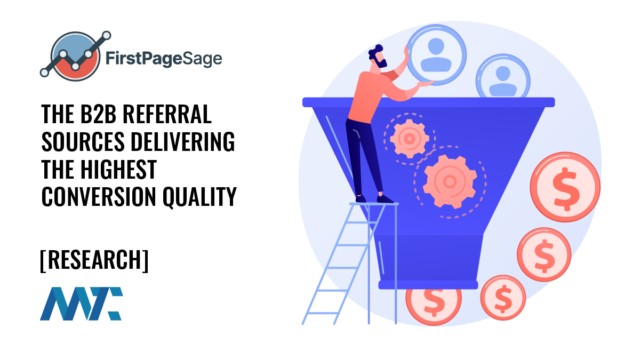Will Your Sales Team Be Replaced By Robots?

Artificial Intelligence (AI) is reshaping the sales landscape, driving unprecedented efficiency, personalization, and predictive power into every stage of the sales process. From prospecting to closing deals, AI-powered technologies accelerate workflows, enhance customer experiences, and boost revenue for organizations willing to embrace them.
Companies like Salesforce, Microsoft, and Gong are in charge of introducing innovative tools that leverage generative (GenAI) and predictive AI. While the optimism around these solutions is well-founded, sales remains a deeply human endeavor where emotional connections often seal the deal.
Companies must also contend with potential customer resistance to impersonal, automated pitches as they scale their AI-driven strategies. Beyond the algorithms, the nuanced skills of salespeople—like spotting personal opportunities to connect—remain irreplaceable. Here’s a deep dive into how AI impacts every aspect of the sales process, the technologies driving this transformation, and practical takeaways for organizations.
AI Across the Sales Process
Artificial Intelligence is redefining every stage of the sales journey, from pinpointing high-potential leads to sealing the deal, with cutting-edge technologies that empower teams to work smarter and faster.
- Prospecting: AI is revolutionizing how sales teams identify and prioritize leads. Predictive analytics tools analyze vast datasets—historical sales, customer behavior, and market trends—to score leads based on their conversion likelihood. This eliminates the guesswork of traditional prospecting, allowing reps to focus on high-potential opportunities. For instance, Apollo uses AI to uncover new prospects, connect with key contacts, and suggest personalized outreach strategies, streamlining the top of the funnel. Meanwhile, HubSpot offers generative AI tools that automate lead research and craft tailored outreach messages, cutting down on manual effort. These technologies accelerate the prospecting phase, ensuring reps spend less time sifting through data and more time engaging with viable leads.
- Lead Qualification: Qualifying leads is no longer a time-consuming manual task. AI-driven lead scoring, powered by machine learning (ML), evaluates factors like engagement levels, firmographics, demographics, and past interactions to prioritize prospects. Salesforce’s AI, for example, offers agents who analyze CRM data to highlight hot leads and suggest next steps. Similarly, Zendesk’s AI prospecting tools identify high-value leads by matching them to ideal customer profiles. This precision reduces wasted effort, allowing sales teams to focus on leads most likely to close, accelerating the sales cycle.
- Personalization: Personalization is a cornerstone of modern sales, and AI takes it to new heights. Generative AI tools create customized emails, presentations, and proposals by pulling insights from CRM data and customer interactions. Gong’s Revenue Intelligence Platform analyzes customer communications to tailor messaging that resonates with individual prospects. Meanwhile, Freshworks’s Freddy AI generates personalized email content and recommends products based on past behavior. These tools enable hyper-personalization at scale, making every interaction feel bespoke, though they must be paired with human oversight to avoid sounding robotic or generic.
- Sales Coaching: AI transforms sales coaching by analyzing audio from calls and meetings to provide constructive, actionable feedback for sales teams. Tools record and transcribe conversations, using natural language processing (NLP) to assess sentiment, tone, and pacing—detecting moments of hesitation, overly aggressive pitches, or missed opportunities to build rapport. For example, Gong might flag a rep’s tendency to interrupt prospects (negative sentiment) or highlight a successful empathetic response (positive sentiment), offering tailored suggestions like slow down here or ask an open-ended question next time. Similarly, Chorus—now part of ZoomInfo—analyzes speech patterns and keywords to benchmark reps against top performers, providing data-driven coaching insights. This real-time feedback loop accelerates skill development, boosts confidence, and ensures consistent improvement, though it relies on human managers to contextualize advice and inspire lasting change.
- Sales Forecasting: AI-powered forecasting replaces gut instinct with data-driven precision. By analyzing historical sales, pipeline data, and external factors like market trends, predictive AI delivers accurate revenue projections. Microsoft’s Copilot for Sales leverages generative AI to provide insights into customer trends and forecast deal outcomes, while IBM’s AI tools assess pipeline gaps and suggest corrective actions. This foresight helps sales leaders allocate resources effectively and adjust real-time strategies, driving more predictable growth.
- Customer Engagement: Engaging prospects and customers is faster and smarter with AI. Conversational AI, like chatbots powered by Zendesk’s Answer Bot, handles initial inquiries, qualifies leads, and collects data 24/7, freeing reps for higher-value interactions. Gong takes this further by transcribing sales calls, flagging key moments (e.g., objections or pricing discussions), and offering real-time coaching suggestions. These tools enhance engagement by ensuring timely responses and providing reps with actionable insights, though they lack the emotional nuance humans bring to complex conversations.
- Closing Deals: AI supports the final push to close by predicting deal likelihood and recommending optimal strategies. Salesforce’s AI generates tailored proposals and suggests pricing based on historical data, while IBM’s AI tools offer step-by-step close plans grounded in CRM insights. This strategic guidance accelerates decision-making and increases win rates, though the human touch—building trust and addressing last-minute concerns—remains critical to sealing the deal.
By infusing AI into each phase, sales teams can achieve unparalleled efficiency and precision, though the human touch remains the heartbeat of turning prospects into loyal customers.
Optimism and the Pragmatic Reality of AI in Sales
Generative AI is a game-changer for efficiency. It drafts emails, creates presentations, and generates sales content in minutes, freeing reps to focus on relationship-building. Predictive AI anticipates customer needs and market shifts, giving sales teams a competitive edge. These technologies promise faster cycles, higher conversions, and scalable personalization—benefits already driving significant ROI for early adopters.
Despite AI’s promise, sales is fundamentally a human process. Buying decisions often hinge on trust, empathy, and emotional resonance—qualities AI struggles to replicate. A perfectly crafted AI-generated email might grab attention, but the rep can read a prospect’s tone or share a relatable story that closes the deal. As companies scale AI-driven outreach, customers may grow resistant to the flood of automated pitches. The onslaught of generative messaging risks feeling impersonal or manipulative, especially as buyers become savvier about AI’s role. Striking a balance—using AI to enhance, not replace, human interaction—is key to maintaining authenticity and avoiding backlash.
The Human Edge: Identifying Opportunities Beyond Parameters
Salespeople excel at spotting opportunities AI can’t predict. For example, discovering a prospect is a die-hard sports team fan could lead to sending a jersey or meeting at a game, gestures that build rapport and open doors. These serendipitous insights come from casual conversations, intuition, and emotional intelligence, areas where AI falls short. A rep might notice a prospect’s excitement about a new project or a subtle hint of frustration with a competitor, turning those cues into tailored pitches. Unstructured and unpredictable outside parameters remind us that sales is as much art as science.
Takeaways
- Integrate Gradually: Start with AI tools that address pain points—like lead scoring or email automation—before scaling to broader applications. Test solutions and observe their measurable impact.
- Prioritize Data Quality: AI thrives on accurate, comprehensive data. Ensure your data is up-to-date to ensure integration of AI tools provides maximum impact instead of embarrassing mishaps.
- Train Teams: Equip reps with tailored training to use AI effectively. Highlight benefits—like time savings and better insights—to overcome resistance.
- Blend AI with Human Skills: Use AI for efficiency but rely on reps for emotional connections and creative outreach.
- Monitor Customer Feedback: Watch for signs of resistance to automated messaging. Adjust strategies—perhaps reducing frequency or adding human follow-ups—to maintain trust.
- Leverage Predictive Insights: Adopt tools that help guide resource allocation and strategy more effectively, but validate predictions with human judgment.
- Stay Agile: The AI landscape evolves rapidly. To stay ahead, regularly evaluate the latest tools.
AI undeniably transforms sales, accelerates processes, personalizes outreach, and drives results. The optimism around generative and predictive AI is justified—efficiency and scalability are within reach. Yet, the human element remains irreplaceable, from forging emotional bonds to spotting unique opportunities. As organizations scale AI, they must navigate potential customer pushback with care, ensuring technology enhances rather than overshadows the personal touch.
By strategically integrating AI and empowering reps to leverage their innate strengths, sales departments can unlock a future of unprecedented growth and connection.







